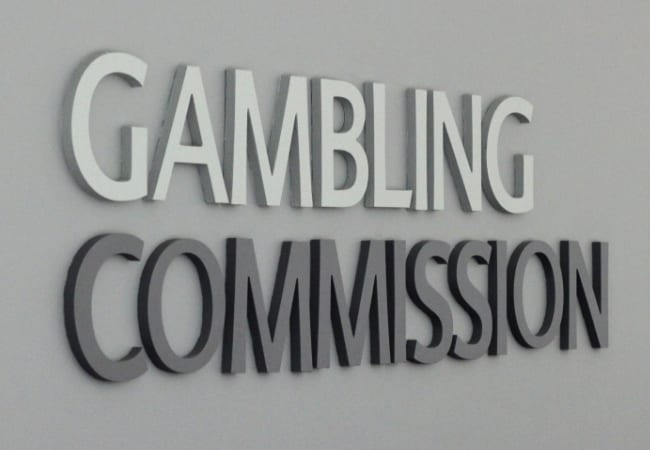GB trio face new licence conditions following SR and AML failings

The Commission took action following investigations into each business, with BGO also agreeing to pay £2m (€2.2m/$2.6m) towards the implementation of the National Strategy to Reduce Gambling Harms. GAN, meanwhile, will make a £146,000 payment, and NetBet £748,000.
“Licensees must protect consumers from harm and treat them fairly,” Gambling Commission executive director Richard Watson said. “Our recent investigations uncovered a variety of consumer protection and anti-money laundering failings at each of these three operators and as a result we are using a range of enforcement tools against them.
“We will continue to crack down on failing operators through our tough and proactive compliance and enforcement work.”
The investigation into BGO was launched in September last year, following a compliance assessment in September 2018, which saw the regulator identify failings in how the operator interacted with customers from a social responsibility and AML perspective.
This ultimately revealed that the licensee had failed to apply effective policies and procedures for customers displaying signs of problem gambling between 25 September 2018 and 23 March 2020, a breach of Social responsibility (SR) code provision 3.4.1(1).
BGO permitted customers to gamble six-figure sums without taking action, despite the player in question hitting a number of triggers that should have prompted interventions.
It also breached licence conditions 12.1.1(1), 12.1.1(2) and 12.1.1(3) by failing to conduct adequate source of funds tests and enhanced due diligence on customers that presented a greater risk of money laundering. In one case it failed to act when made aware a customer was depositing more than five times their annual salary.
In each case, BGO has since taken action to address these failings.
BGO, which cooperated fully with the investigation, has agreed to apply enhanced due diligence measures to its top 250 customers, comprising the top 125 by deposit, and the top 125 by losses. This will be conducted within three months, then repeated every 12 months thereafter.
It will also track the effectiveness of the responsible gambling checks carried out on its top 250 customers – again split by deposits and losses – also within three months, then every 12 months.
The findings of each review must be presented to BGO’s board, and any action points addressed, and made available to the Commission when required. In addition to its £2m payment in lieu of a financial penalty, the operator will cover the Commission’s investigation costs, totalling £31,023.87.
Turning to GAN, and its Winstar Casino brand, the Commission launched its regulatory review in January this year. This revealed that between August 2018 and September 2019, it failed to have adequate safeguards for money laundering and to protect the vulnerable.
It did not conduct an adequate risk assessment of potential money laundering risks, amounting to a breach of licence condition 12.1.1(1). This in turn led to breaches of conditions 12.1.1(2) and (3), as it failed to have appropriate AML safeguards in place, meaning it did not conduct reviews of these controls, a breach of 12.1.2.
The lack of controls saw a customer have bank accounts in a different name accepted as source of funds proof, and insufficient further investigations into an individual who used cryptocurrency assets as evidence of funds.
GAN also breached Social Responsibility code provision 3.2.11, by failing to prominently display age warnings on the Winstar site. By not having provisions in place to intervene in cases of customers that displayed signs of problem gambling, it also breached code provision 3.4.1(1).
A further breach of that code, this time for provision 5.1.6 (1), occurred as Winstar featured a number of game tiles with cartoon imagery. While this was largely removed in 2018, one tile still featured imagery that was considered to be of appeal to minors, something GAN put down to human error.
This has seen GAN ordered to ensure all persons that hold the money laundering reporting officer (MLRO) or their deputy required to hold suitable qualifications, and a Personal Management Licence (PML). These individuals must also take annual refresher training in AML and counter-terrorist financing (CTF) training.
This AML training must be extended to all PML holders, senior management and key control staff, followed by annual refreshers. GAN has also agreed to continue to review the effectiveness of its AML and social responsibility policies, procedures and controls.
In addition to its £146,754 payment, comprising a £100,000 contribution to the National Strategy to Reduce Gambling Harms, and a £46,754 divestment from customer accounts that was accrued as a result of its failings, that will go to the same body. GAN will also pay £6,000 towards the Commission’s investigations costs.
Finally, NetBet will pay £748,000 in lieu of a financial penalty after it was found to have breached licence condition 12.1.1 (3), related to the prevention of money laundering and terrorist financing.
The business was found to fail to conduct appropriate levels of enhanced due diligence on at-risk customers, and no checks in some cases. Source of funds documentation, meanwhile, was not always reviewed properly when received and requested.
It was also found to have breached social responsibility code provision (SRCP) 3.4.1, for failing to have adequate processes for intervening with customers showing signs of problems. Its processes were not properly followed by staff, the regulator’s investigation revealed.
As a result it has made a series of changes, such as monitoring the log-in times for customers during assessments, and not factoring winnings into risk assessments.
The effectiveness of interactions will also be logged in customer profiles, and an affordability calculator has been created, allowing customers to assess the amount of disposable income they have available. NetBet will also place automatic limits on customers displaying early signs of problem gambling.
In addition to its £748,000 payment, NetBet will pay £8,806 towards the Gambling Commission’s investigation costs.
